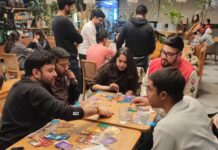Flipkart. Myntra. Amazon. SheIn. Ads on Instagram. Facebook. Freaking Marketplace.
Everywhere we look (on our smartphones), we are being encouraged to buy, buy, buy (whether we actually need things or not).
Wishlists are bad for the pocket
The wishlist system which most of these sites have allow us to shortlist and store several products to buy later.
Of course, human tendency is to never be satisfied, and we end up wanting more and more, leading to a never-ending cycle of consumerism.
Why I deleted my shopping apps
This month, I ended up wasting a lot of time simply browsing through shopping sites (even though in real life, I find shopping tedious and boring).
Why? The temptation was always right there, at the click of a button.
Last night as I went through my wishlists, I realised I was just storing things I already had that were in perfectly good condition, in case the time came for an ‘upgrade.’
As a result, I was always thinking of when I could upgrade to the shiny new product, and wasn’t satisfied with what I had.
The solution
I decided to nip this bad habit in the bud, and deleted my accounts with shopping apps. The only wishlist I have retained is the wishlist of books on Amazon.
I’ve decided to live completely in the moment, and stop browsing through shopping apps and constantly shortlisting new things that I don’t actually need.
If I ever need to shop, I have decided to do it from an ACTUAL STORE.
The inference
Many of my friends had similar experiences with online shopping.
I feel that these apps and sites are preying on the millennial generation specifically, by using words and advertising that would appeal to us, and bombarding us with ‘sales’ in order to pressurise us to shop more, immediately.
The term FOMO (Fear Of Missing Out) is used quite often to advertise these sales, in order to make people believe that everyone is shopping, so we should, too.
Read More: I Recently Embraced The Trend Of Minimalism, And Here’s How It Changed My Life
Influencers make it worse
Several major and minor celebrities (as well as regular hoomans who became famous thanks to carefully thought out online strategies) develop their ‘brand’ (and grow their income) by modelling products on Instagram.
They make it look like these are indispensable to their lives, and use their clout and charisma to brainwash their followers into buying the same.
Daniel Wellington, Nykaa, etc. are a few brands that regularly employ this tactic. They also give offer codes to the celebrities to share with their followers, encouraging them to shop by giving them a starting discount.
I have seen many wannabe influencers tagging their clothes and watch brands on Insta in order to get noticed, and hopefully acquire such sponsorships!
This needs to stop!
We need to take a step back for a moment and realise how royally we, as a generation, are being used as a marketing and sales tool.
The consumerist life doesn’t give anything more than temporary satisfaction – once you get into the cycle of always wanting the latest fashion, phone, etc., you will never be satisfied with what you have, and will never be able to use what you have for a long time.
Not only is this a waste of money, it’s also not a sustainable way to live.
This whole piece is not about sounding preachy, I just want to open the eyes of my fellow millennials who have an online shopping addiction to how royally they’re being “had.”
Guys and girls, take control of your lives and your wallets. Don’t squander your time and money by becoming a website’s bakra.
Image Credits: Google Images
Find the author online at: @samyukthanair_
More Recommendations:
In Pics: Konmari: The Japanese Living Philosophy By Marie Kondo That’s Taking Over The World





































